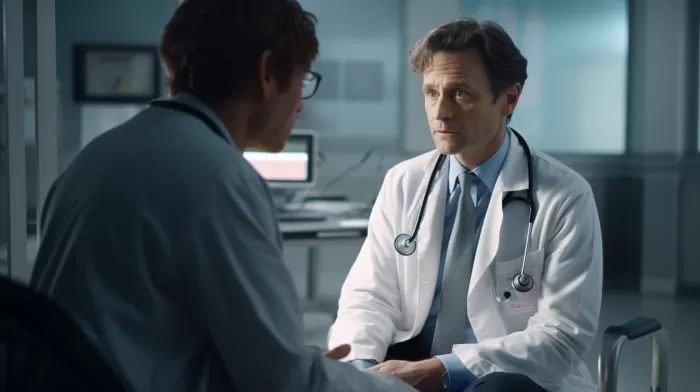Men may believe they are tougher than women, but when it comes to cancer, that’s far from true. In fact, according to the American Cancer Society, men have a one in two chance of developing cancer in their lifetime and a one in four chance of dying from some type of the disease. In comparison, women have a one in three and one in five chance, respectively.
No one wants to receive a cancer diagnosis, but identifying it early is crucial. Though having cancer is certainly not an automatic death sentence, early detection can greatly improve the chances of successful treatment and recovery. That’s why it’s so important for men to pay attention to their bodies and not ignore potential warning signs.
If you experience any of the following 10 cancer symptoms, be sure to consult a physician. Even if it turns out to be nothing or something less severe than cancer, you’ll have the peace of mind knowing what you’re facing and what steps to take next.
Changes in Bathroom Habits
If you notice a sudden change in your bathroom habits, such as increased frequency or urgency to pee, difficulty starting or stopping urination, blood in the urine, or painful urination, it may be a sign of prostate or bladder cancer. It’s important to consult a doctor if any of these symptoms persist, as early detection can significantly improve treatment outcomes.
Persistent Pain
We all experience random aches and pains from time to time, but if you’re dealing with persistent pain that won’t go away and cannot be easily attributed to an injury, it’s time to consult a physician. Persistent pain can be indicative of many different cancer types.
Unexplained Weight Loss
If you suddenly lose a significant amount of weight without making any changes to your diet or exercise routine, it could be a sign of cancer. This is especially true if the weight loss is accompanied by other symptoms like fatigue or loss of appetite. Unexplained weight loss can be a symptom of various cancers, such as pancreatic, stomach, lung, or esophageal cancer.
Changes in Skin Appearance
Skin changes, like jaundice (yellowing of the skin and eyes), darkening of the skin, reddened skin, or the appearance of new moles, freckles, or pigmented spots, can all be signs of different types of skin cancer. Early detection is crucial for successful treatment, so it’s essential to pay close attention to changes in your skin and report anything unusual to your doctor.
Difficulty Swallowing
If you’re experiencing difficulty swallowing, it could be a sign of throat, stomach, or esophageal cancer. It’s crucial to bring this symptom to the attention of your doctor, who can determine the cause and recommend proper treatment.
Changes in Lymph Nodes
Lymph nodes help your body fight infection, but swollen or painful lymph nodes can be a sign of cancer. If you notice any unusual swelling or pain in the lymph nodes, don’t hesitate to bring it up with your doctor.
Unusual Fatigue
While it’s normal to feel tired from time to time, persistent fatigue that doesn’t improve with rest can be a sign of an underlying health issue, such as cancer. If you’re constantly feeling exhausted, it’s crucial to consult with your doctor to determine the cause and appropriate treatment.
Persistent Cough
A persistent cough that doesn’t go away after a few weeks, especially if accompanied by blood, can be a sign of lung cancer. Don’t wait until your symptoms get severe – seek medical advice as soon as possible.
Changes in Testicles
Any changes in the size, shape, or texture of your testicles could be a sign of testicular cancer. It’s important to perform self-exams regularly and consult a doctor if you notice any abnormalities.
Unusual Bleeding
Rectal bleeding can be a sign of colorectal cancer, while blood in the urine can indicate bladder or kidney cancer. Although not all unusual bleeding is indicative of cancer, it’s crucial to find the cause and address any potential health issues.
In conclusion, it’s vital for men to be aware of these cancer symptoms and not downplay their importance. Early detection is key when it comes to treating cancer, and addressing these warning signs can save lives. Don’t hesitate to consult with a physician if you’re experiencing any of these symptoms, as knowing what you’re up against and taking the necessary steps to manage it will greatly improve your chances of recovery.



